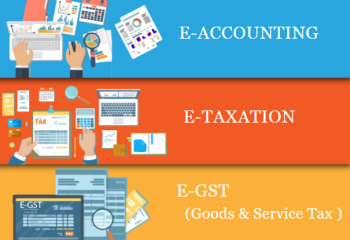What are the key differences between Excel formulas and VBA macros?
Description
Microsoft Excel provides powerful tools for data analysis and automation, with Excel Formulas and VBA Macros being two primary methods for performing calculations and automating tasks. While both enhance Excel’s functionality, they serve different purposes and have distinct capabilities. Below is a comparison of Excel Formulas vs. VBA Macros to help understand their key differences.
1. Purpose and Functionality
Excel Formulas: Used for calculations, data analysis, and logical operations within cells.
VBA Macros: Used for automating repetitive tasks, creating custom functions, and interacting with multiple sheets or applications.
Example:
- A formula like
=SUM(A1:A10)adds numbers within a range. MIS Course in Delhi - A VBA Macro can loop through thousands of rows, apply logic, format data, and generate reports automatically.
2. Automation Capability
Excel Formulas: Require manual input and update dynamically based on cell changes.
VBA Macros: Execute pre-defined operations automatically with a single click or trigger.
Example:
- A formula updates when data changes.
- A VBA Macro can automatically format reports, send emails, and filter large datasets.
3. Complexity and Customization
Excel Formulas: Limited to built-in functions (SUM, VLOOKUP, IF, etc.), requiring nested logic for complex operations.
VBA Macros: Can perform advanced calculations, loops, conditional logic, and interaction with other applications like Outlook and Word.
Example:
- A nested
IFformula checks multiple conditions but becomes complex. - VBA can create a custom function to simplify the logic and make it reusable.
4. Speed and Performance
Excel Formulas: Work well for small datasets but slow down with large data and multiple calculations.
VBA Macros: Process large datasets efficiently by executing commands at the backend.
Example:
- A sheet with thousands of formulas may slow Excel.
- A VBA Macro can replace multiple formulas with one-time calculations, improving performance.
5. User Interaction and Interfaces
Excel Formulas: Require users to manually input values and manage formulas.
VBA Macros: Can create interactive user forms, buttons, and dashboards for better user experience.
Example:
- A data entry sheet using formulas requires users to type manually.
- VBA can create input forms with dropdowns and buttons for easier data entry.
6. Error Handling and Debugging
Excel Formulas: Errors (#N/A, #VALUE!, etc.) require manual debugging.
VBA Macros: Have built-in debugging tools to handle errors and exceptions programmatically.
Example:
- Formula errors must be manually fixed.
- VBA can automatically detect and correct missing values.
7. Application Scope
Excel Formulas: Limited to calculations within a spreadsheet.
VBA Macros: Extend Excel’s functionality by interacting with databases, web services, and other applications.
Example:
- Formulas cannot send an email.
- VBA can generate an Excel report and email it automatically.
Get an MIS Course with 100% Job Guarantee by SLA Consultants India, New Delhi
To master Excel Formulas and VBA Macros for business automation, SLA Consultants India offers a comprehensive MIS (Management Information System) Course in New Delhi. This course is designed for professionals aiming to enhance their data analysis and automation skills.
Course Highlights
Hands-on Training on Excel Formulas, VBA Macros, and Advanced Automation.
Expert Guidance from industry professionals with real-world case studies.
Comprehensive Curriculum covering Data Analysis, Power Query, Power Pivot, and Dashboard Creation.
100% Job Guarantee with placement assistance in top companies.
Who Should Join?
- MIS Executives, Data Analysts, and Finance Professionals looking to enhance automation skills.
- Students and Working Professionals aiming for a career in data management and reporting.
Take Your Career to the Next Level!
Enroll in SLA Consultants India’s MIS Certification Course in Delhi today and gain expertise in Excel Formulas, VBA Macros, and Advanced Excel Automation.
For more details, visit SLA Consultants India, New Delhi, and secure your job with expert-led training!
SLA Consultants What are the key differences between Excel formulas and VBA macros? Get MIS Course with 100% Job by SLA Consultants India, New Delhi, details with New Year Offer 2025 are available at the link below:
https://www.slaconsultantsindia.com/advanced-excel-vba-mis-practical-training-course.aspx
https://slaconsultantsdelhi.in/training-institute-data-analytics-course-excel/
MIS & Data Analysis in Excel Training Course
Contact Us:
SLA Consultants India
82-83, 3rd Floor, Vijay Block,
Above Titan Eye Shop,
Metro Pillar No. 52,
Laxmi Nagar,New Delhi,110092
Call +91- 8700575874
E-Mail: hr@slaconsultantsindia.com
Website : https://www.slaconsultantsindia.com/






